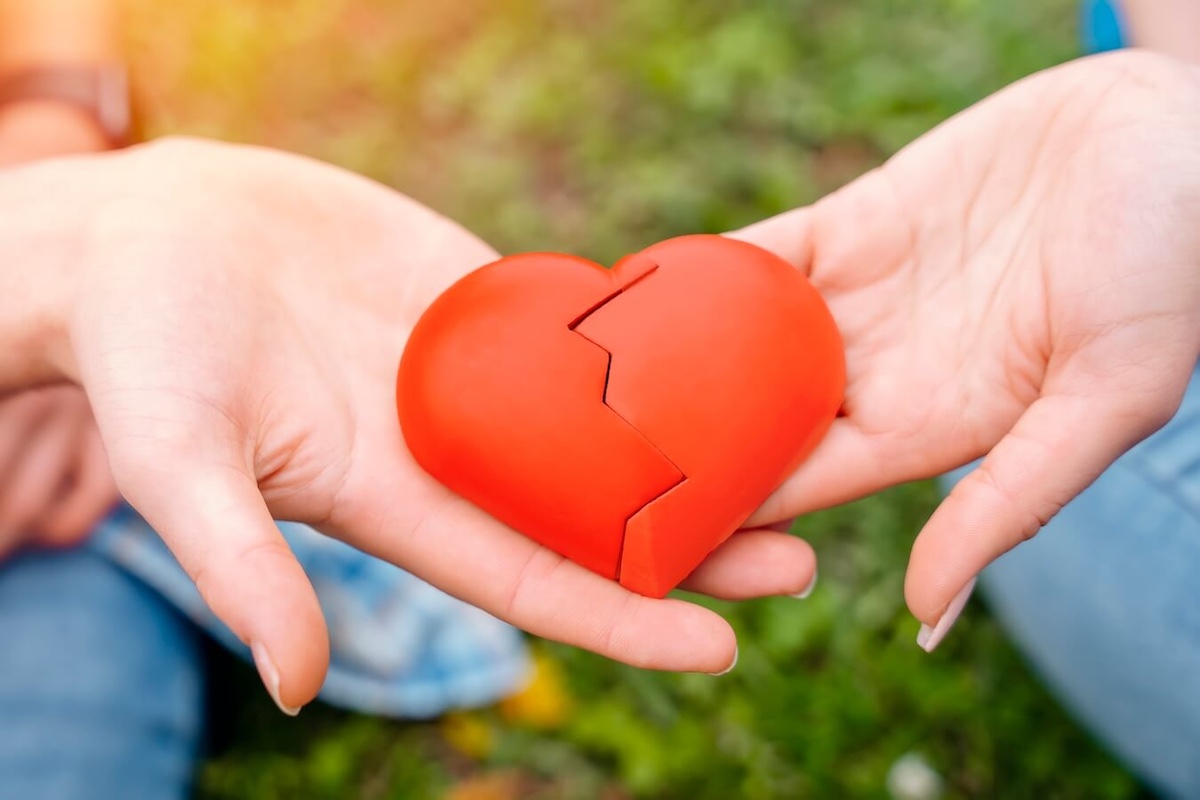How to Love Yourself Again After a Breakup
Breakups have a way of shaking up everything we know —how you see yourself, your life, even your future. It’s like having the rug pulled out from under you, leaving you feeling lost, questioning your worth, and unsure of how to move forward.
The truth is, healing takes time. Embracing self-love after a breakup is hard! But one of the most powerful steps you can take is reconnecting with yourself and rebuilding your sense of self-love.
This guide offers practical, compassionate advice to help you nurture yourself during this difficult chapter and love yourself again after a break up. It covers rebuilding confidence, rediscovering joy in your own company and how to find your way back to you.
Why Loving Yourself After a Breakup Feels So Hard
Relationships aren’t just about love—they shape how we see ourselves.
When a relationship ends, it can feel like you’ve lost a part of who you are. It’s no wonder that finding self-love again can feel like climbing a mountain.
Even in amicable breakups, this process can be tough. And if the relationship was toxic or abusive? The road back to self-love can feel even harder.
But here’s the thing—you can get there. Let’s explore why it’s so challenging and how to move past these emotional roadblocks.
The Emotional Whirlwind
Breakups stir up a storm of emotions—grief, rejection, anger, self-doubt. These feelings are normal, but they can chip away at your sense of self-worth. Especially in long-term relationships, it’s easy to feel like you’ve lost your identity along with your partner.
The Loss of External Validation
When you’re in a relationship, it’s natural to lean on your partner for comfort, encouragement, and a sense of belonging. After a breakup, that absence can feel like a void, making you question your value.
Feeling Stuck in the Aftermath
Breakups often come with a sense of being stuck—unable to move forward, unsure of what’s next. It can be a fear of the unknown or unresolved feelings and this limbo can be paralyzing.
Recognising that this is a normal part of the healing process is the first step toward regaining your footing.
Steps to Rebuild Self Love After a Breakup

Healing is a deeply personal journey and how your breakup journey looks will be very different to someone elses.
That being said, there’s no exact timeline for when you have fully healed and grieved the end of a relationship. This unknown timeline can be a huge source of anxiety for most people, wondering when the hurt will stop.
There are no “easy” breakups, even when they are amicable.
But there are actionable steps you can take to help you move forward with grace and intention. Here’s how to start:
1. Allow Yourself to Grieve
Let’s be real—pretending you’re fine doesn’t work. Grieving is part of the process, and it’s okay to feel sad, angry, or even relieved. Suppressing these emotions only prolongs the pain.
When a relationship ends, the emotional experience can be compared to the death of a loved one.
Sure, they’re still living but there is a void in each of your lives that is no longer being filled and as such, the stages of grief apply to breakups and divorce too!
The stages of grief include:
- Denial – “It can’t really be over.”
- Anger – “How dare he think he can find better than me.”
- than me?”
- Bargaining – “If only I had done things differently, maybe we could have worked it out.”
- Depression – “I don’t know how to move on from this.”
- Acceptance – “It’s time to let go and focus on my own healing.”
Each of these stages is normal and part of the grieving process, but not necessarily linear. You might jump between them, revisit some emotions, or even skip over a few.
The important thing is to give yourself permission to experience these feelings fully, without judgment. You’re allowed to mourn the loss of what was, and acknowledging that grief is part of your healing process is essential for moving forward in a healthy way.
Try this: Journal your thoughts daily to process what you’re feeling. If emotions become overwhelming, channel them into physical activities (like running) or creative outlets (like painting) or talk them through with a supportive friend.
2. Make Self-Love A Priority
Taking care of yourself isn’t indulgent—it’s essential. Focus on practices that nourish your body and mind.
When you are feeling mentally drained and emotional, this is the time to make sure your physical self is being cared for as best you can. And yes, it’s okay to binge that tub of chocolate ice cream while crying along with a sad movie.
Balance those moments with self-care experiences that help you feel better.
Ideas for self-care after a breakup:
- Take mindful walks to clear your head.
- Cook meals that make you feel good, not sluggish.
- Establish a bedtime routine that helps you unwind, like reading or meditating.
- Treat yourself to a new haircut, a spa treatment or home hair treatment.
3. Reframe Negative Self-Talk
Breakups have a way of waking up your inner critic. It’s that voice that says, “I wasn’t enough,” or “I’ll never find love again.” But here’s the thing—you can challenge those thoughts.
Unfortunately there’s no magic switch to turn them off but affirmations are a pretty good start!
Studies have proven that affirming yourself with positive self statements can help with reframing negative self-talk and boost you confidence. Give them a try!
Say them out loud. Write them in your journal. Stick them on sticky notes on the side of your mirror. Whatever works.
Swap these:
- Instead of “I failed,” try “I’m learning what I deserve in love.”
- Instead of “I’ll never find love,” try “I’m growing into the best version of myself.”
4. Create New Routines
Change can be incredibly refreshing. Shaking up your daily habits and introducing new ones that feel exciting or meaningful is a great way to reclaim your sense of self.
When you’ve been in a long-term relationship, many of your routines and habits are often shared. Without your partner, it’s normal to feel a little lost or disoriented at first.
But here’s the empowering part—this is your chance to create a fresh start with routines that are uniquely yours.
Think about the things you stopped doing because your partner wasn’t into them, or activities you miss but never made time for.
It might feel a bit strange at first, but embracing these activities isn’t about spite—it’s about rediscovering what truly makes you happy and what resonates with you now. It’s your time to make your daily routine reflect the person you are today.
Examples:
- Change up your cleaning routine.
- Rearrange or redecorate your living space for a fresh vibe.
- Start going to the gym early in the morning.
- Go out for dinner with friends after work.
- Have a random beach day!
5. Reconnect with Your Authentic Self
When you’ve spent a lot of time prioritising someone else’s needs, it’s easy to lose touch with your own. Now’s the time to rediscover what makes you you.
This one sort of fits into the last point but more about the specific interests, hobbies and passion projects that you love rather than the routines and habits you have.
Steps to try:
- Revisit hobbies you used to love.
- Reflect on your personal goals and take small steps toward them.
- Spend time with supportive friends who lift you up.
- Try new hobbies or classes that you have been wanting to start.
6. Focus on Physical Health
Your emotional well-being and physical health are deeply connected, and taking care of your body can boost how you feel emotionally.
Even small changes in your daily routine can make a big difference in your mood and energy levels.
One of the simplest and most effective ways to improve your emotional state is through physical activity. It doesn’t mean you need to switch from couch potato mode to gym junkie (unless you want to) but it does mean getting physical.
Go for a walk, do yoga, or dance to your favorite songs. Moving your body helps release endorphins—the “feel-good” hormones that can uplift your mood and reduce stress.
As an added bonus, taking care of your physical health can give you a sense of accomplishment and control, which is particularly empowering during a time of emotional recovery.
Try this:
- Go for a walk.
- Stretch for 10 minutes each day.
- Prep meals that give you energy and fuel your recovery.
- Explore yoga or meditation for stress relief.
- Do a weekly zumba class.
- Try aqua aerobics or swim laps.
- Encourage your besties to go for a weekend hike.
7. Set Healthy Boundaries
Healing requires space. Limiting contact with your ex might feel tough, but it’s one of the best things you can do for your emotional stability.
Even if you agree to stay friends, this is often harder said than done. It might not be possible YET but hopefully one day when there has been time for a little more healing.
This might also mean asking friends and family members not to ask about your breakup until you are ready to talk about it.
Tips for setting breakup boundaries:
- Mute or unfollow them on social media.
- Communicate only when absolutely necessary.
- Give yourself permission to take distance from mutual friends if needed.
8. Lean on Your Support System
This is the time to call on your people. Surround yourself with those who make you feel loved, valued, and understood.
Most of us have been through a breakup at some point in our adult lives. Even those high school break ups felt like the end of the world at the time.
And surprisngly, sometimes the person you find the most supportive following a seperation or split is not always your best friend but perhaps an aquaintance who has recently been through similar or a collegue at work who just has a way helping you process your thoughts out loud.
Get your friends together for a night of laughter. A good belly laugh is another great way to release endorphins and boost those feel good hormones like serotonin and dopamine.
Healing After a Toxic Relationship
Recovering from a toxic relationship comes with its own unique set of challenges. Toxic dynamics often leave deeper emotional scars, such as lingering self-doubt, anxiety, and even trauma.
Toxic relationships can distort your perception of yourself, often leaving you feeling unworthy, guilty, or like you’re somehow “too much” or “not enough.”
Recognising how the toxicity affected your mental and emotional health is the first step to breaking free from its grip.
It’s not always possible to do this without help, whether that help be from friends and family members or from a counsellor or psychologist. This is especially important to consider if you have left a relationship that was abusive, controlling or violent.
But while the path to healing can feel overwhelming, it’s also a chance to reclaim your self-worth and rebuild a stronger, healthier version of yourself.
Here’s how you can begin the recovery process after leaving a toxic relationship:
- Acknowledge the Impact: Toxic dynamics can erode your confidence and distort your sense of self. Reflect on the harmful patterns you experienced to gain clarity on how it is impacting you after it has ended.
- Set Boundaries: Limit contact with your ex to protect your emotional well-being. Unfollow or block them if necessary to create space for healing.
- Challenge Negative Beliefs: Replace self-doubt with empowering thoughts, like “I am deserving of love and respect.” Journaling or therapy can help reframe these patterns.
- Rebuild Confidence: Rediscover hobbies or activities that make you feel good about yourself. Celebrate small victories to strengthen your self-esteem. This 30-day self-confidence challenge is a good starting point.
- Focus on Emotional Healing: Process your emotions through journaling, mindfulness, or creative outlets. Therapy can help if you’re dealing with deeper trauma.
- Learn Healthy Love: Educate yourself on what respect, trust, and mutual support look like in a relationship to redefine what you deserve.
- Celebrate Your Courage: Walking away from toxicity is a powerful act of self-love. Remind yourself daily that you deserve peace and happiness.
That last one is a big one! Leaving a toxic relationship is not easy—it takes incredible strength to walk away, especially when you’ve been made to feel small or powerless.
Change is scary. That fear of not having ‘someone special’ is scary but they are not the right someone and you deserve a life with real love and kindness, mutual respect and support.
Acknowledge your bravery and celebrate the fact that you chose your well-being over staying in a harmful situation.
Seek Professional Support if Needed
If the effects of the relationship feel overwhelming—such as experiencing PTSD-like symptoms, severe anxiety, or depression—don’t hesitate to seek professional help.
A therapist can provide tools and coping strategies tailored to your specific situation, helping you process and heal at your own pace.
Seeking help is never a weakness. If it feels uncomfortable, consider the long term consequences of not getting help – a little discomfort now might very well be the reason you can feel happy and mentally healthy later!
Building a New Foundation For Future Love
You’ve likely heard it said before that you can’t love someone else until you know how to love yourself. While love is still possible, loving yourself first creates a stronger foundation for any relationship.
When you love yourself, you bring a sense of confidence, self-respect, and emotional stability to the table—qualities that help you build a healthier, more fulfilling connection with others.
- Forgive Yourself and Your Ex – Forgiveness doesn’t mean excusing hurtful behaviour—it means letting go of resentment so it doesn’t weigh you down.
- Revisit Your Core Values – What matters most to you? Use this time to align your life with your values and create a path that feels fulfilling.
- Commit to the Journey– Self-love isn’t a finish line—it’s a lifelong practice. Be patient with yourself as you navigate this new chapter.
- Prepare for Future Relationships – Rebuilding your confidence allows you to set healthy boundaries, recognise red flags, and develop stronger, more loving relationships in the future.
Rediscovering self love after a breakup isn’t just about healing from the past. This is also your chance to grow into the person you are meant to be. All of our experiences shape us into who we are and who we will become.
Good or bad, they are part of us. It’s how we choose to respond to those experiences that defines our future.
A breakup, while heartbreakingly painful, is an opportunity for growth, self-reflection, and a chance to reconnect with your authentic self once the emotional fog begins to clear. You’ve got this and you are worthy of love!







